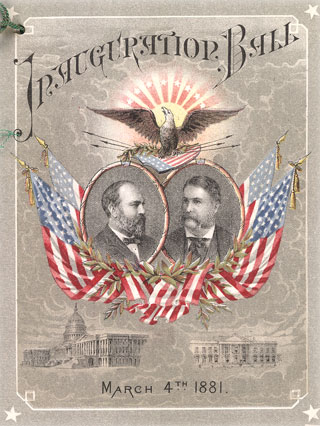First Words: James Garfield, March 4, 1881
The inaugural address of James Garfield certainly falls into the category of “speeches lost to history.” It dovetails nicely with the addresses previously examined in this series. Harrison’s inaugural is more known for the fact that it probably killed him than for its content. Buchanan’s is overshadowed by a presidency infamous for his inability to prevent (and respond to) the onset of civil war. James Garfield falls into neither of those categories. His speech is lost to history because his presidency is lost to history. His most distinctive attribute is that a former supporter who was mentally ill assassinated him less than a hundred days after his inauguration. This end is all the more unfortunate when considered in the context of his inaugural address, which is surprisingly substantive and inspiring--especially for one of the “forgotten” presidents.

Garfield, a man who rose to public office largely due to his renown as hero of the Civil War, began by saying: “We ourselves are witnesses that the Union emerged from the blood and fire of that conflict purified and made stronger for all the beneficent purposes of good government.” Garfield believed that the conflict had foreclosed one of the most divisive issues in American political history:
The supremacy of the nation and its laws should be no longer a subject of debate. That discussion, which for half a century threatened the existence of the Union, was closed at last in the high court of war by a decree from which there is no appeal--that the Constitution and the laws made in pursuance thereof are and shall continue to be the supreme law of the land, binding alike upon the States and the people.
A considerable portion of the speech is dedicated to discussing the plight of newly freed slaves. Garfield said that the enfranchisement and self-sufficiency of freed persons was a force that would “grow greater and bear richer fruit with the coming years.” Garfield went on to say:
[T]hose who resisted the change should remember that under our institutions there was no middle ground for the negro race between slavery and equal citizenship. There can be no permanent disfranchised peasantry in the United States. Freedom can never yield its fullness of blessings so long as the law or its administration places the smallest obstacle in the pathway of any virtuous citizen.
Garfield warned Southern communities seeking to disenfranchise newly freed slaves that their actions would “destroy the government itself.” He posed a poignant question: “We may hasten or we may retard, but we can not prevent, the final reconciliation. Is it not possible for us now to make a truce with time by anticipating and accepting its inevitable verdict?”
For Garfield, the integration of freed men and women into economic, political, and social life was a fixed course. It was a profound symbol of that “purified,” stronger Union. The road to the realization of that Union was (and is) an uneven, windy one. But Garfield's Inaugural recognizes the ultimate direction in a way that is unexpected—and worth remembering.